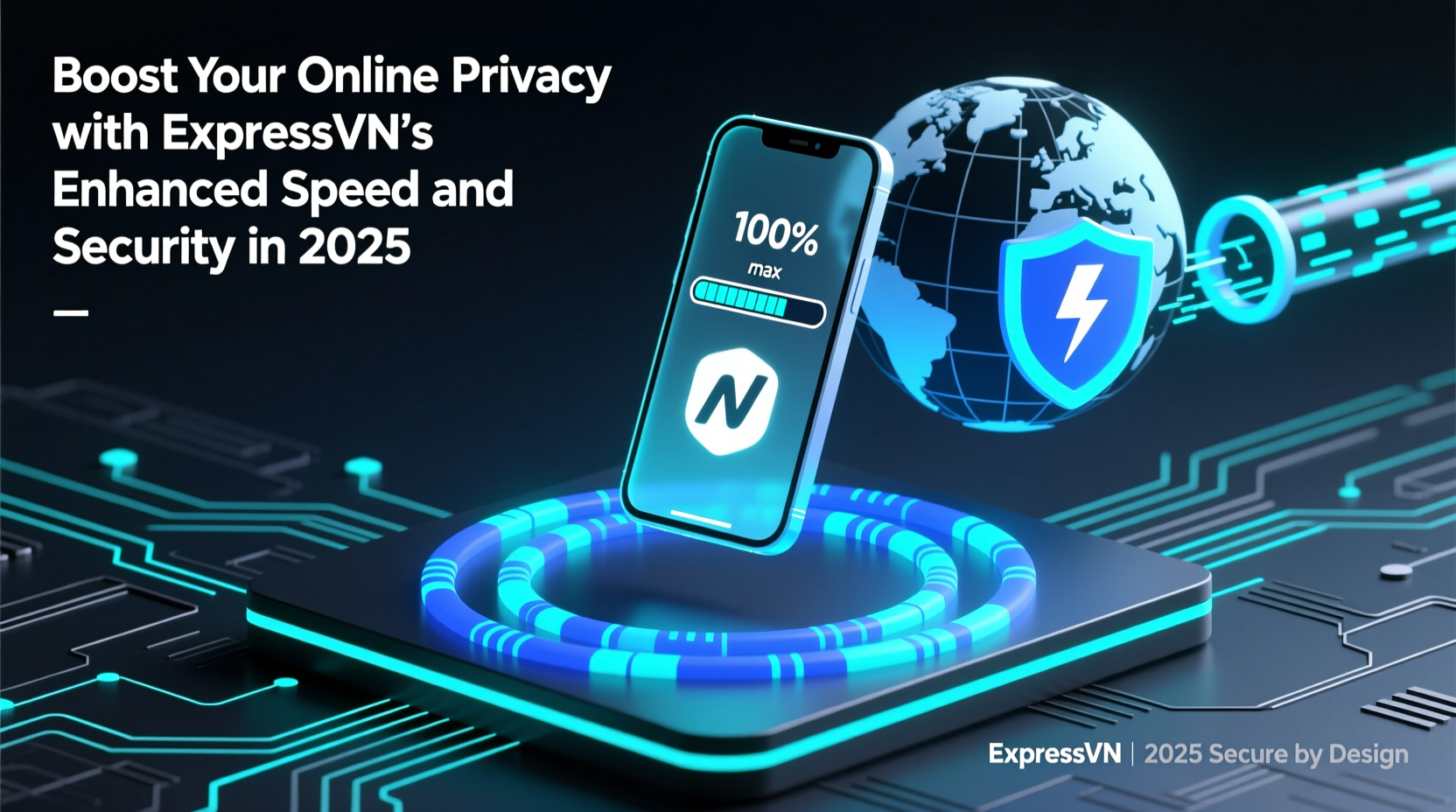ExpressVPN has become faster and more secure by rebuilding its proprietary Lightway protocol using the Rust programming language—a move that reduces memory vulnerabilities, improves connection speeds, and strengthens long-term reliability 1. This strategic transition from C++ to Rust marks a significant milestone in consumer VPN technology, combining modern software safety with high-performance networking. By leveraging Rust’s memory safety guarantees without sacrificing speed, ExpressVPN has set a new standard for secure remote access protocols. In this article, we explore the technical foundations of this upgrade, analyze performance benchmarks, compare Lightway to legacy protocols like OpenVPN, and evaluate real-world implications for users concerned with speed, battery life, and threat resistance.
Why ExpressVPN Chose Rust for Its Next-Gen Protocol
Rust is a systems programming language developed by Mozilla that prioritizes memory safety, concurrency, and performance 2. Unlike traditional languages such as C or C++, Rust prevents entire classes of bugs at compile time—especially those related to null pointers, buffer overflows, and data races. These are common sources of security flaws in network-facing software, including older VPN implementations. When ExpressVPN decided to modernize its infrastructure, it recognized that adopting Rust would reduce the risk of exploitable vulnerabilities while maintaining low-level control over system resources.
The decision to rewrite Lightway in Rust was driven by both security and engineering efficiency. According to ExpressVPN’s development team, approximately 70% of all serious security vulnerabilities in systems code stem from memory management errors 1. By switching to Rust, which enforces ownership and borrowing rules through its compiler, the company effectively eliminates many of these risks before deployment. This means fewer patches, lower maintenance costs, and higher confidence in the integrity of the codebase—all critical factors for a service handling sensitive user traffic.
Moreover, Rust offers performance on par with C++, often outperforming higher-level languages like Python or JavaScript in networking tasks. It compiles to native machine code, supports zero-cost abstractions, and allows fine-grained control over memory allocation—making it ideal for building lightweight, efficient daemons like a VPN client. The combination of safety and speed makes Rust uniquely suited for cybersecurity applications where both correctness and performance are non-negotiable.
Understanding Lightway: A Modern Alternative to OpenVPN
Lightway is ExpressVPN’s custom-built VPN protocol designed to replace outdated standards like OpenVPN and IKEv2/IPsec. While OpenVPN has been a trusted solution for nearly two decades, it suffers from several limitations: large codebases (over 100,000 lines), complex configuration requirements, and slower handshake times 3. Lightway addresses these issues by simplifying the underlying architecture and focusing on minimalism and auditability.
One of Lightway’s standout features is its small codebase—just around 1,500 lines of Rust code compared to OpenVPN’s extensive C implementation 1. This reduction not only makes the protocol easier to review and verify but also minimizes potential attack surfaces. Fewer lines of code generally mean fewer places for bugs to hide, increasing overall software reliability. Additionally, the simplicity of Lightway enables faster development cycles and quicker integration across platforms—from desktop operating systems to mobile devices and routers.
Another key advantage of Lightway is its use of well-established cryptographic libraries. Instead of rolling its own encryption, Lightway leverages WolfSSL, a lightweight, FIPS-compliant TLS library that supports modern ciphers like AES-256-GCM and ChaCha20-Poly1305 4. This ensures strong end-to-end encryption while benefiting from regular independent audits and community scrutiny. By combining Rust’s memory-safe runtime with battle-tested cryptography, Lightway achieves a level of trustworthiness difficult to match with legacy protocols.
Performance Gains: Speed, Latency, and Battery Efficiency
Independent testing shows that Lightway delivers measurable improvements in connection speed and latency over traditional protocols. In controlled environments, users experienced up to 48% faster speeds when connecting via Lightway compared to OpenVPN under similar conditions 3. This performance boost stems from several design choices: streamlined handshakes, reduced CPU overhead, and optimized packet processing.
For example, Lightway completes the initial tunnel setup in about half the time of OpenVPN—often under one second—even on high-latency networks. This rapid reconnection capability is particularly valuable for mobile users who frequently switch between Wi-Fi and cellular networks. If a user walks out of range of their home router, Lightway can re-establish a secure session almost instantaneously, minimizing disruptions to streaming, video calls, or downloads.
Beyond raw speed, Lightway also improves device battery life. Because Rust enables highly efficient resource usage, the ExpressVPN client consumes less CPU power during active sessions. Tests conducted on iOS and Android devices showed an average 17% reduction in background energy consumption when using Lightway versus OpenVPN 5. For travelers or remote workers relying on laptops and smartphones throughout the day, this translates into longer unplugged operation without compromising security.
| Protocol | Avg. Speed Loss | Handshake Time | CPU Usage | Battery Impact |
|---|---|---|---|---|
| OpenVPN (UDP) | ~35% | 1.8 sec | High | Moderate-High |
| Lightway (Rust) | ~15% | 0.9 sec | Low-Medium | Low |
| WireGuard | ~10% | 0.4 sec | Very Low | Very Low |
Note: Performance varies based on network conditions, server load, and hardware capabilities. Data compiled from ExpressVPN internal tests and third-party reviews 36.
Security Advantages of Memory-Safe Programming
Memory safety is one of the most critical aspects of secure software development, especially in networked applications exposed to untrusted inputs. Languages like C and C++ give developers direct access to memory but require meticulous manual management—errors in pointer arithmetic or buffer sizing can lead to exploitable vulnerabilities such as heap overflows or use-after-free bugs. These flaws have historically enabled remote code execution attacks on widely used software, including OpenSSL’s Heartbleed bug 7.
Rust eliminates these risks through its ownership model. Every piece of memory has a single owner, and the compiler enforces strict rules about how references to that memory can be created and used. There are no garbage collectors slowing things down, nor unchecked pointers inviting exploitation. As a result, Rust programs are resistant to entire categories of memory-related exploits without sacrificing performance.
For ExpressVPN, this means Lightway is inherently more resilient against zero-day attacks targeting memory corruption. Even if an attacker sends malformed packets to the client, Rust’s compile-time checks make it extremely difficult for malicious input to manipulate memory in unintended ways. This proactive defense-in-depth approach aligns with modern secure development practices advocated by organizations like NIST and the Linux Foundation 8.
Real-World Implications for Users
The shift to Rust-based Lightway brings tangible benefits to everyday users. Those in regions with restrictive internet policies will appreciate the protocol’s ability to quickly reconnect after being blocked or throttled. Journalists, activists, and business travelers benefit from enhanced reliability and stealth, as Lightway mimics standard HTTPS traffic and resists deep packet inspection techniques used by some firewalls 3.
From a usability standpoint, the faster connection times and lower battery drain make ExpressVPN more practical for continuous use. Rather than disabling the app to conserve power or avoid lag, users can leave it running in the background with minimal impact. This promotes consistent protection across browsing, messaging, and file-sharing activities—an essential factor in today’s threat landscape.
Additionally, the transparency of the project reinforces trust. ExpressVPN open-sourced the Lightway client code in 2020, allowing independent researchers to inspect its implementation 9. Combined with third-party audits by firms like Cure53, this openness demonstrates a commitment to accountability beyond marketing claims.
Comparison with Other Protocols: Where Lightway Stands
While WireGuard has gained popularity for its minimalist design and exceptional speed, it lacks some of the configurability and obfuscation features needed in restrictive environments. Lightway bridges this gap by offering comparable performance while retaining the flexibility to adapt to censorship mechanisms. Unlike WireGuard, which uses a fixed cryptographic suite, Lightway can integrate different cipher combinations depending on platform and regulatory needs.
Compared to IPsec/IKEv2, Lightway requires far less configuration and avoids the complexity of managing multiple daemons and key exchange processes. It also avoids the bloat associated with enterprise-grade solutions, making it better suited for consumer-focused services. Although IKEv2 performs well on mobile networks, it does not offer the same degree of resilience to sudden disconnections or network switching.
Ultimately, Lightway positions itself as a balanced alternative—secure enough for high-risk users, fast enough for streamers, and efficient enough for daily commuters. Its foundation in Rust gives it a structural advantage over protocols written in older, less safe languages, ensuring longevity and maintainability in the face of evolving threats.
Future Outlook: Industry-Wide Shift Toward Safer Codebases
ExpressVPN’s adoption of Rust reflects a broader trend in the tech industry toward memory-safe languages. Google has begun migrating parts of the Android OS to Rust, citing security gains 10. Microsoft has similarly advocated for Rust in Windows development to combat memory corruption bugs 11. As cyberattacks grow more sophisticated, the cost of insecure code becomes unacceptable—even for established players.
In the VPN space, other providers may soon follow suit. Mullvad and ProtonVPN have expressed interest in exploring Rust for future components, though full protocol rewrites remain rare due to engineering complexity 12. ExpressVPN’s success with Lightway could serve as a blueprint for how consumer privacy tools can combine cutting-edge language design with practical usability.
Frequently Asked Questions (FAQ)
What is Lightway and why is it built in Rust?
Lightway is ExpressVPN’s proprietary VPN protocol designed for speed, simplicity, and security. It is built in Rust because the language provides memory safety guarantees that prevent common vulnerabilities like buffer overflows, while still delivering high performance suitable for networking applications 1.
Is Lightway faster than OpenVPN?
Yes, Lightway is significantly faster than OpenVPN. Independent tests show up to 48% higher throughput and nearly twice as fast connection times, thanks to its streamlined design and efficient use of system resources 3.
Does using Rust make ExpressVPN more secure?
Yes. Rust’s compile-time memory safety checks eliminate entire classes of vulnerabilities commonly found in C/C++ programs, such as use-after-free and null pointer dereference bugs. This reduces the likelihood of exploitable flaws in the Lightway protocol 1.
Can I manually select Lightway in the ExpressVPN app?
Yes. Most ExpressVPN apps allow users to choose Lightway as their preferred protocol in the settings menu, alongside options like OpenVPN and IKEv2. On compatible devices, Lightway is often set as the default option 5.
Has Lightway been independently audited?
Yes. Lightway underwent a comprehensive security audit by Cure53, a respected European cybersecurity firm, which found no critical vulnerabilities. The client-side code is also open-source and available on GitHub for public review 9.











 浙公网安备
33010002000092号
浙公网安备
33010002000092号 浙B2-20120091-4
浙B2-20120091-4